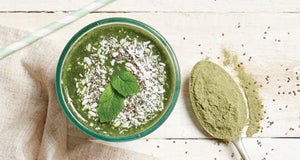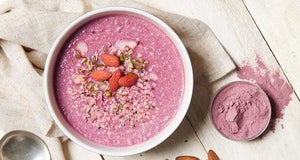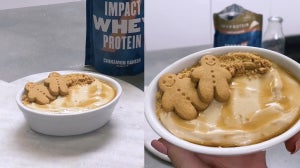
Written by Jamie Bantleman
Week 1 Of 8
In this series of 8 articles, I will be covering the different training phases of aiming for the perfect beach body. It will take you through different weight training workouts, cardio sessions, modified strongman sessions and abs workouts.
This plan will not be for the feint hearted and is geared towards those aiming for serious change by training at a high level of intensity when required to and lifting as much weight as you possibly can. Sounds too difficult? Don’t worry, shoot for one of the other plans we have developed here on The Zone. This is time for serious hard graft in order to get amazing results!

To see great results you should take a ‘pre’ shot of your front, back and sides in a totally relaxed position. At the end of each week, re-take the photo’s and if it is accessible in the gym that you train at have your BioSignature Assessment done in order to track your skin fold measurements, body fat % and lean mass.
Your nutritional protocol will change as and when your body does, if you are losing weight and even increasing in muscle mass you can adapt your calories and macros where it suits. This article will be dedicated to explaining how we will do this and achieve the best results possible. Therefore, to kick this off we will firstly be going into finding how many calories we should be eating on a day to day basis.
This will be down to your basil metabolic rate and how often you are training per week. The different variables that will affect this total figure will be how active you are, how tall and heavy you are as well as your gender. The best method I use outside of having yourself tested with a scientific metabolic testing unit is the Harris-Benedict method which is easily accessible online. Find your total requirements and then we can then move on to your macronutrients.

Your macronutrients are protein, fat and carbohydrates. These are the food which we will break your nutritional strategy down into. Firstly, presuming you are between 15-20% body fat we will use a 14 day lower carbohydrate protocol which is known as by an ‘insulin cleanse’. This is reducing the total amount of sugars in the diet from carbohydrate loads such as cutting out all sources of carbs including fruit and cordial/fruit juices etc.
We will use carbs from above ground vegetables, however, for now, we are going to lose the root vegetables (such as sweet and white potatoes). Your diet will consist of high-quality protein sources as well as fats in the form of foods such as avocados, oils, butter, and olives. Your total macronutrient split will be:
Protein: 50%
Fat: 40%
Carb: 10% (from veg)
Training Plan Weeks 1-2
Monday: Session 1
Tuesday: Session 2
Wednesday: REST
Thursday: REST
Friday: Session 1
Saturday: Session 2
Sunday: REST

| Order | Session 1 | Sets | Reps | Tempo | Rest |
| A1 | Bulgarian Split Squat | 4 | 10 | 3010 | 10s |
| A2 | Barbell Deadlift | 4 | 10 | 3010 | 90s |
| B1 | Lying Leg Curl | 4 | 12 | 3010 | 10s |
| B2 | Dumbbell Walking Lunges | 4 | 12 | 3010 | 90s |
| C1 | Reverse Hack Squat | 4 | 15 | 3010 | 10s |
| C2 | Leg Extension | 4 | 15 | 3010 | 90s |
| Order | Session 2 | Sets | Reps | Tempo | Rest |
| A1 | Dumbbell Flat Chest Press | 4 | 10 | 3010 | 10s |
| A2 | Semi-Supinated Grip Pull Down | 4 | 10 | 3010 | 90s |
| B1 | Seated Dumbbell Press | 4 | 12 | 3010 | 10s |
| B2 | Barbell Bent Over Row | 4 | 12 | 3010 | 90s |
| C1 | Cable Flies | 4 | 15 | 3010 | 10s |
| C2 | Seated Cable Row | 4 | 15 | 3010 | 90s |
Our articles should be used for informational and educational purposes only and are not intended to be taken as medical advice. If you're concerned, consult a health professional before taking dietary supplements or introducing any major changes to your diet.








